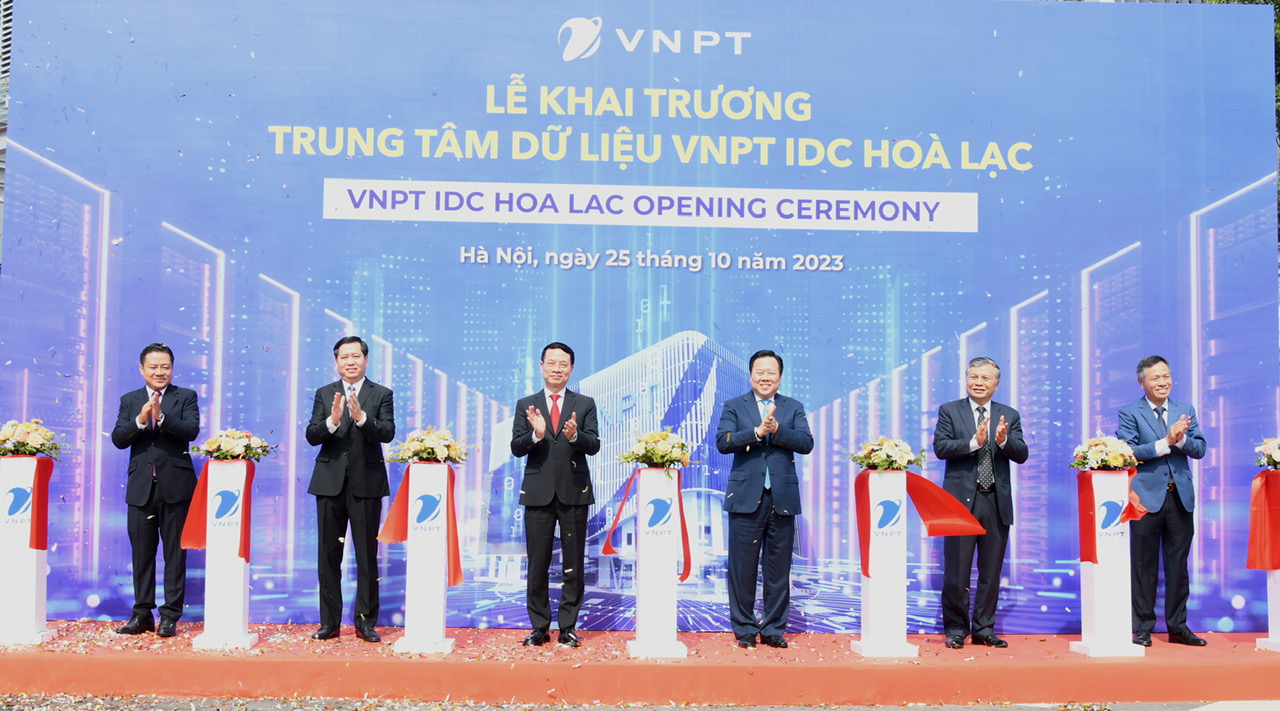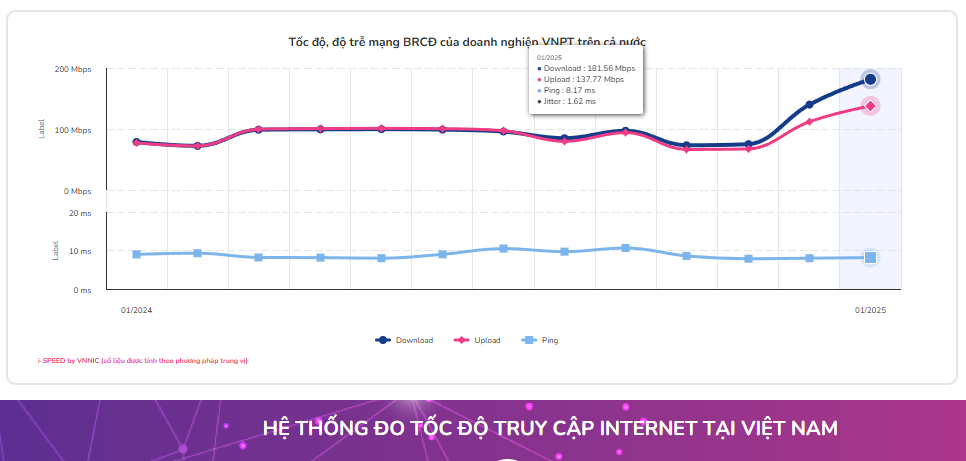
VNPT IDC Hòa Lạc is capable of providing the most advanced data services in Vietnam, and ready to meet the tailored requirements of all customer segments domestically and internationally.
Việt Nam Posts and Telecommunications Group (VNPT) officially opened the eighth internet data centre (IDC) in Hòa Lạc Hi-Tech Park in Hanoi on October 25th.
This is the largest IDC in Việt Nam, invested by VNPT with the most modern technology, fully meeting international technical standards.
VNPT IDC Hòa Lạc will be the safest choice for data of international brands, large economic corporations, organisations and businesses on the digital transformation journey.
VNPT IDC Hòa Lạc has a total usable area of up to 23,000 m2 of floor space, with a scale of up to 2,000 racks, the largest in Việt Nam today.
IDC Hòa Lạc has achieved Uptime Tier III Certification of Constructed Facility, construction and installation (TCCF), Design Documents (TCDD) and will soon be certified for Operational Sustainability (TCOS).
The equipment in the IDC is provided by famous brands such as Cumin, Hitachi and Siemens. The centre has super-speed network connectivity, an average of 2Gbps/rack for domestic connections and 0.5Gbps/rack for international network connections, thanks to its advantage of being the leading telecommunications network in Việt Nam.
Huỳnh Quang Liêm, General Director of VNPT Group, said that with IDC Hòa Lạc, VNPT currently own eight data centres in major provinces and cities including Hà Nội, Đà Nẵng and HCM City. All of these centres fully meet strict domestic and international standards.
IDC Hòa Lạc was the largest and most modern centre in Việt Nam, capable of providing the most advanced data services in Việt Nam, and ready to meet the "tailored" requirements of all customer segments domestically and internationally, he said.
It is expected that in the coming time, VNPT Group will continue to seek opportunities to co-operate with partners and investors to build new regional and world-class data centres, using green and sustainable technology.
This affirms VNPT's role in accompanying the government and businesses in realising the national digital transformation aspiration, aiming to become the region's digital hub, said Liêm.
To realise this ambition, in recent years, the group invested and built data centres covering all three regions with seven systems meeting international standards and the digital transformation needs of customers from government organisations to domestic businesses, he said.
"Backbone" of the digital economy
Developing and building a synchronous and modern national digital infrastructure to serve the digital government is a development trend of many countries.
In Việt Nam, the Prime Minister has clearly stated his views and emphasised the essential and mandatory nature of digital infrastructure. This is the key infrastructure of the digital economy.
Currently, the Ministry of Information and Communications is also developing a draft Decision of the Prime Minister approving the Digital Infrastructure Strategy until 2025 and orientation to 2030.
The goal of the strategy is to bring the country's digital infrastructure development in line with developed countries in the world, becoming a driving force for economic development.
Besides network infrastructure development, the most important components of digital infrastructure are cloud computing and data centres.
In particular, the data centre is considered the "heart" of the internet and the "backbone" of the digital economy.
It plays an important role in storing, processing and managing huge amounts of data, helping the digital transformation process take place smoothly and quickly.
The data centre market in Việt Nam is expected to reach US$1.03 billion by 2028, a significant increase compared to the figure of $561 million recorded last year, according to Research and Markets.
Việt Nam currently has 39 data centres with large investors such as VNPT, Viettel and CMC.
In the national digital infrastructure building strategy, Việt Nam aims to have 100 per cent of government agencies by 2025, and 70 per cent of businesses using cloud computing in domestic units. This strongly motivates domestic businesses to invest more in the data centre field. (theo VNS)









